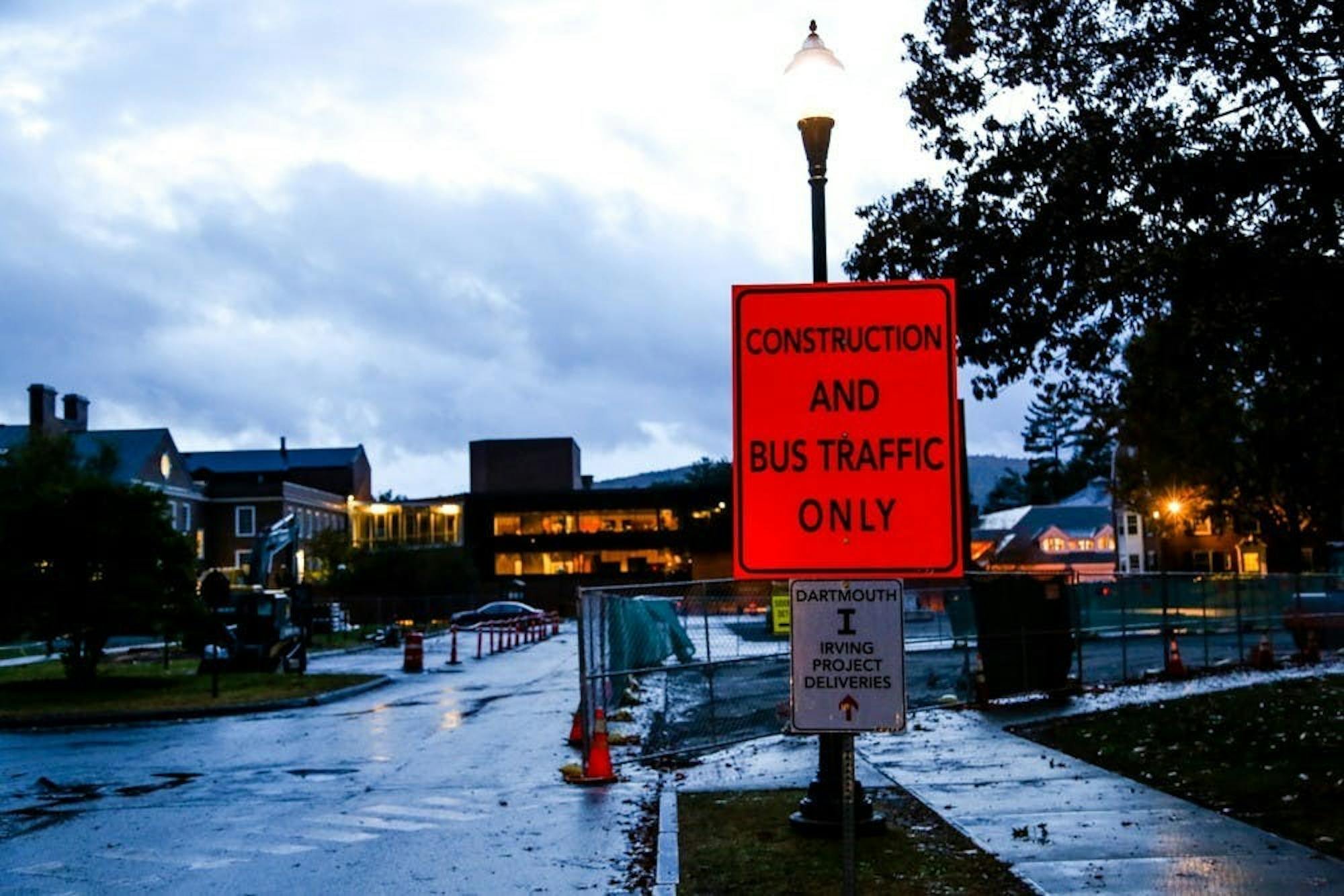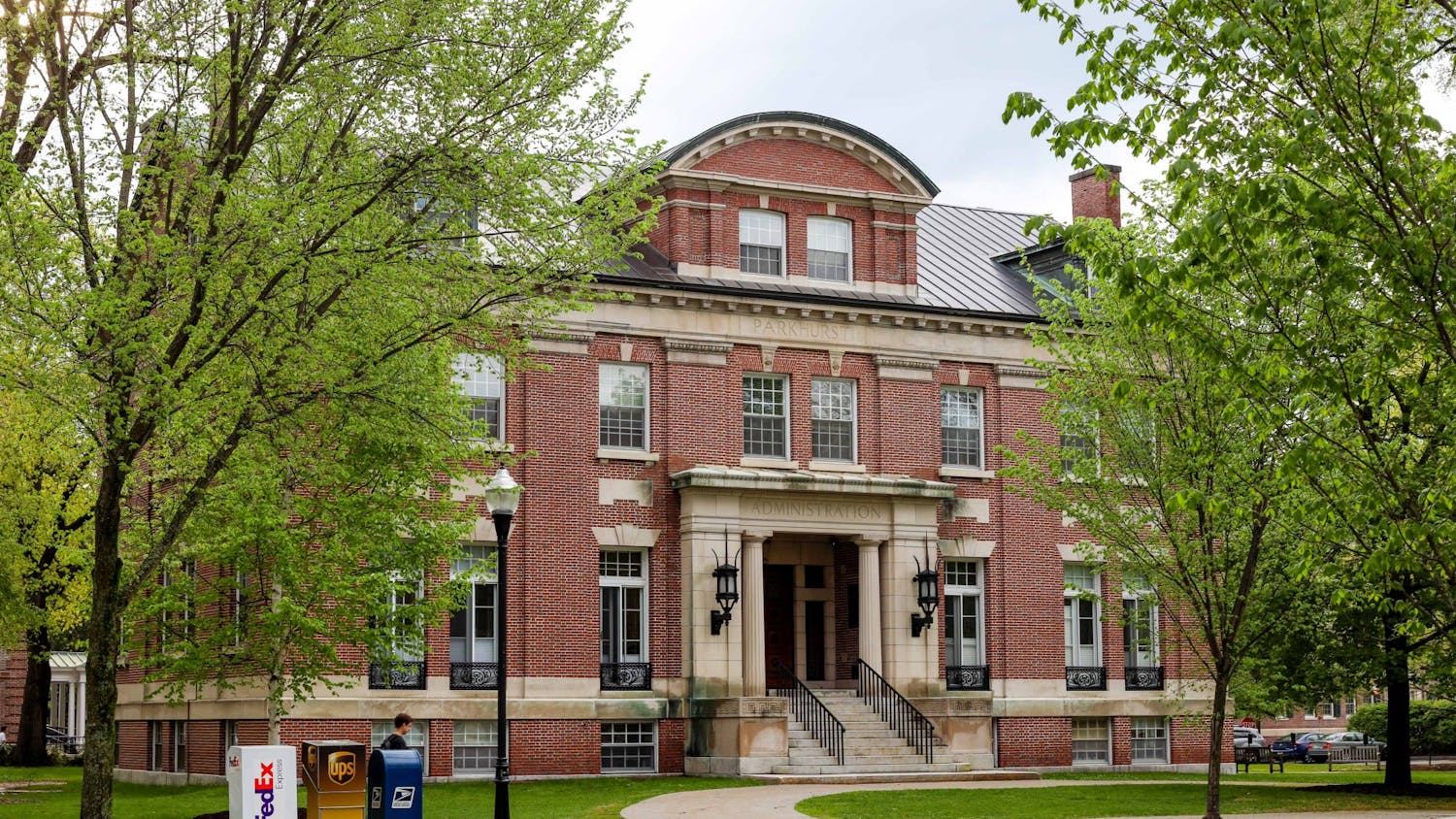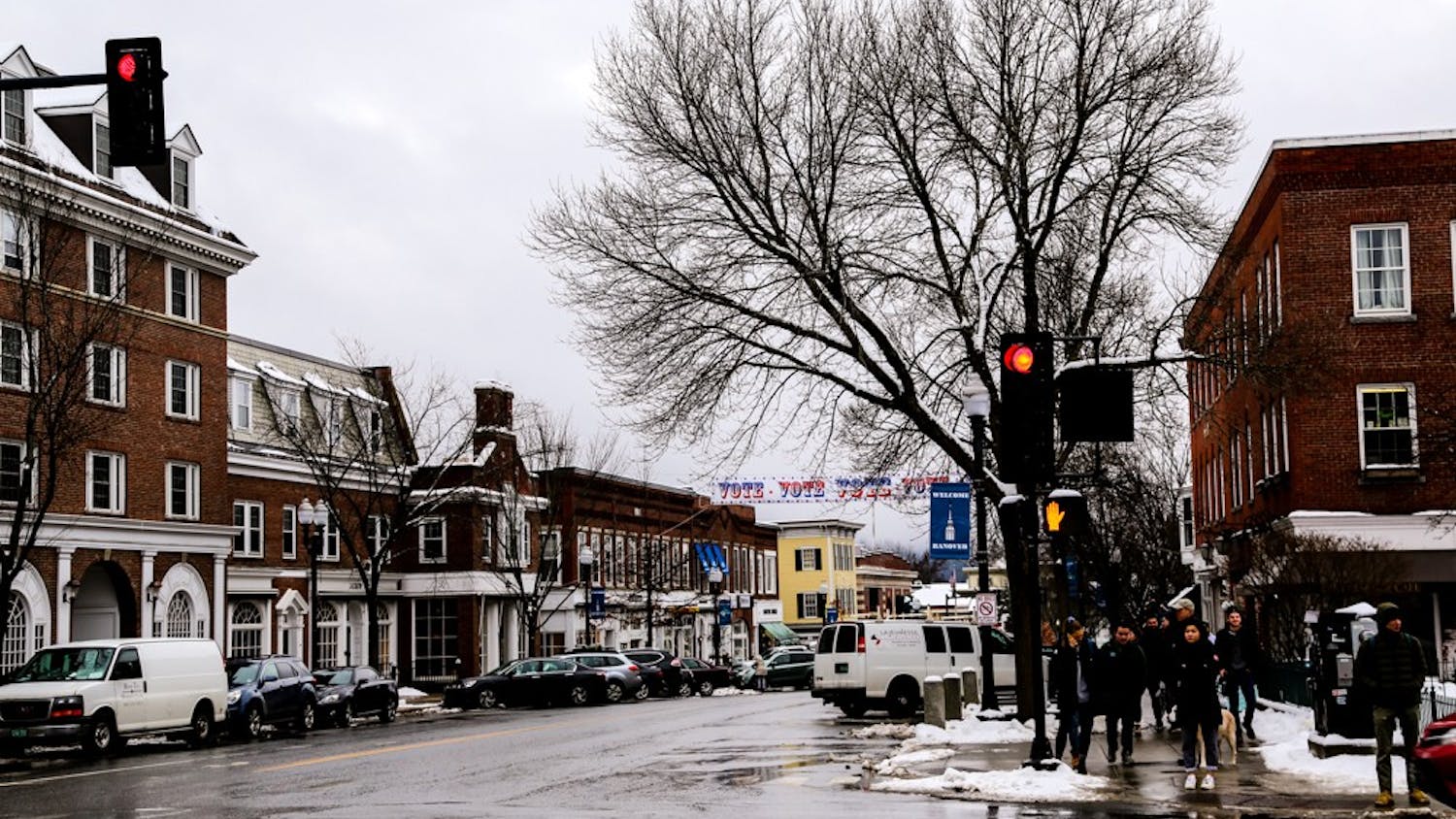Construction on the west end of campus — which includes projects related to the Thayer School of Engineering, the Arthur L. Irving Institute for Energy and Society and the computer science department — has continued this term in light of an emergency order issued by New Hampshire Gov. Chris Sununu (R) deeming construction an “essential” sector during the COVID-19 outbreak.
The project is currently expected to finish in summer or fall 2021, according to Joshua Keniston, interim vice president of campus services and vice president of institutional projects, though he said that the COVID-19 pandemic may prolong the construction.
Keniston noted that social distancing protocols have made certain construction tasks take longer to complete, but he said that the College has been able to mitigate lost time by having workers “[work] slightly longer hours.”
In response to a question about end dates for the projects, College spokesperson Diana Lawrence wrote in an email statement to The Dartmouth that the long-term impact of protocols related to COVID-19 on the construction schedules is still unclear.
Construction around Thayer, including a parking garage and a new building that will serve both Thayer and the computer science department, is “going full steam ahead,” according to Hanover town manager Julia Griffin. A new building for the Irving Institute for Energy and Society has shown “some slowing,” she added.
The Thayer project has reached ground level in its underground parking garage project and is pouring concrete for another deck level, according to Hanover building inspector Ryan Borkowski. Keniston said that the Irving project has “started some of the site prep work.”
The west end projects have been better able to accommodate social distancing protocols and safety measures because they are conducted in open air, Borkowski said. He added that construction sites usually have “room to be spread out,” and he noted that “there’s a fair amount of social isolation that occurs anyways.”
Construction projects on campus that would be difficult to continue while following social distancing protocols were either curtailed, shut down or paused, Keniston said. He noted that the construction on Reed Hall, for example, has slowed.
Turner Construction Company — the construction firm hired by the College to execute the Thayer construction project — has strictly enforced Centers for Disease Control guidelines, vice president and general manager of Turner Construction Meaghan Hooper-Berdik wrote in an email statement to The Dartmouth.
Turner has implemented a range of protocols including maintaining social distancing, wearing personal protective equipment and providing facilities needed for maintaining hygiene, Hooper-Berdik wrote. The construction company also provides an on-site nurse who conducts a “daily temperature screening of the workforce” and sends home anyone who is not feeling well. In light of these measures, some workers have been asked to go home, Keniston said.
Griffin said that the town has emphasized minimizing travel for construction workers working on College projects and ensured that they are going from “where they live to where they work, and then going back to where they live at the end of the work shift.” Keniston added that workers arrive at staggered times in groups of 10 throughout the workday to decrease the density of people on site.
The College has also implemented measures to minimize travel during the work day by “working with some local eateries to provide [lunches] on site … so that the workers don’t have to leave and go interact elsewhere in the community,” Keniston said.
Griffin said that other projects, including solar panel installation in Hanover, have been paused because the contractors are based in Vermont, which has a different definition of “essential workers.”
According to an executive order in Vermont, essential services include “construction necessary to support the COVID-19 response and maintain critical infrastructure,” unlike New Hampshire, which deems all construction workers essential.
Massachusetts has orders similar to New Hampshire that deem construction workers essential, specifically those working on the construction of public schools, colleges and universities. Griffin said that construction workers from Massachusetts are commuting to work at the College every day.




